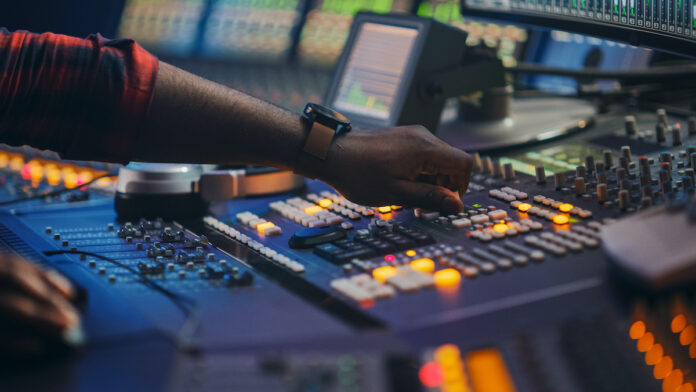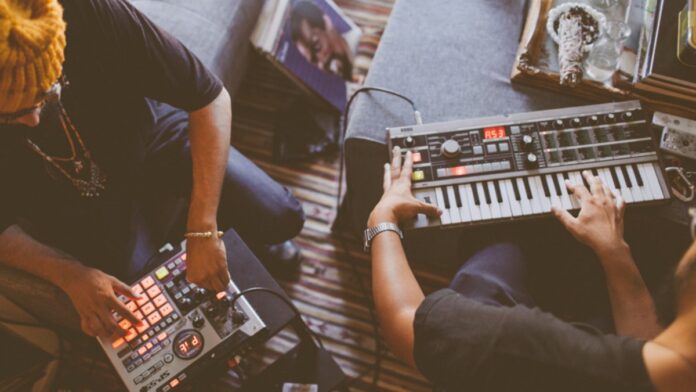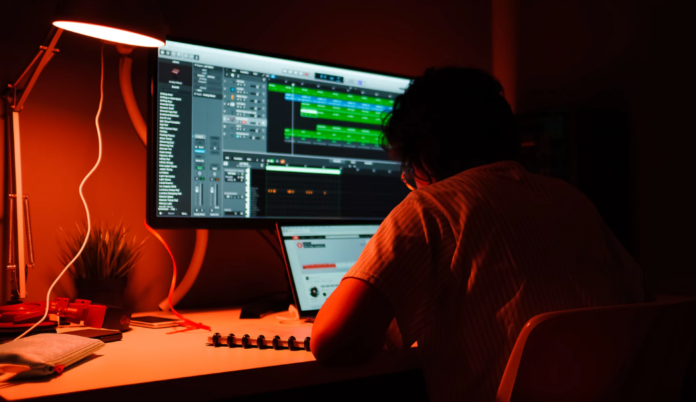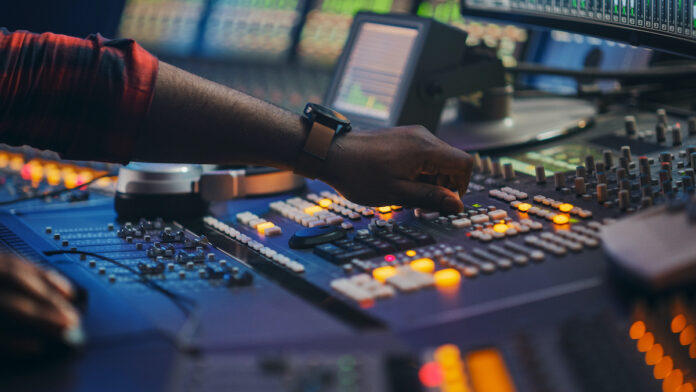In the artistic community, there’s a rather succinct saying that makes the round — “music is what all art aspires to.” There’s a reason for it. Music is transient, it’s fleeting, it’s fast, and it can evoke emotions with much more speed than any other art form. It’s also portable, giving it the power to evoke at a moment’s notice. It can be easily reproduced, good or bad, by its enthusiasts. And, finally, music is widespread – everywhere – and an intriguing part of our daily life.
No other art form is as common, as critical, and as transformative to the human experience as music. It is also one of the most experimental art forms around — and has been a staple of our history since the Paleolithic period. It has evolved, adapting constantly to the tech and trends of the era. And today, one of its most controversial add-ons, or tendencies, is the use of music samples. Let’s dig into what they are, and what benefits and drawbacks they bring to the table.
What is a sample in music?

The use of sample music, or sampling, is a type of music production technique that involves taking a portion of an existing sound recording and reusing it as an instrument or a sound effect in a new composition. The methodology became vogue in the early 1940s, when the French Composer, Pierre Schaeffer created the musique concrète. This was an experimental form of musical project that was molded from recording sounds to tape, mixing them, and manipulating them to create what he liked to call “sound collages.” Pierre used sounds from different sources such as the human body, locomotives, and kitchen utensils.
Sampling has been used in many genres of music including hip-hop, pop, rock, and electronic music. Sample music is often employed to create avant-garde sounds and textures that would otherwise be difficult or impossible to achieve with traditional instruments. It can also be used to add depth to existing tracks.
Thanks to current tech, including hardware, digital online libraries, and audio workstations, sampling has become increasingly popular due to its versatility and affordability.
Music samples can be a great addition to any project, whether you are creating a video, podcast, or music track. They can add texture and depth to your work while also conveying emotion and meaning. Music samples can be used in a variety of ways, from providing background ambiance to setting the tone for an entire project.
Benefits of using music samples

Sample music is a great way to add an extra layer of creativity and emotion to your composition and project. It can help you bring your ideas to life, create a unique soundscape, and make your project stand out from the crowd.
Sample music also has several other benefits, when it comes to practicality and audio production, that make it an attractive choice for many producers and composers.
Here are some of the key advantages of using sample music:
Saves time
Sample music is often provided in the form of pre-recorded audio files that you can access and use at your leisure. This makes it easy to take advantage of them, without having to record or arrange anything yourself — giving you a quick composition that you can employ and create at a moment’s notice.
Flexibility
The availability of sample music in a wide range of musical styles gives composers more options when searching for something that fits their own style.
Specialization
These types of musical files are typically available for specialized areas such as dance, film, video games, and many more. And digital libraries of them can be found online rather easily.
Customizable
The ability to customize your track by adding or removing elements makes it easy to create the perfect soundtrack for your project without having to record it yourself. You can alter vocal hooks, and entire bars of music, speed up or slow them down, loop them, and manipulate them to your heart’s content in a multitude of ways.
Creative freedom
Working with a composer or someone that knows how to manipulate sample music allows you the creative freedom of creating the music that you are looking for. You may work on the length, instrumentation, and other details so that your music fits into any project. Then there’s the AI revolution — today, multiple online platforms can help you out, by automatically taking and re-addressing sample music so it fits your current endeavors.
Drawback of using sample music

At its core, there are some red flags that you have to be on the lookout for when sampling music or using a pre-recorded sound from an online library. Sampling walks a straight-razor line, and it is rather controversial due to copyright issues and fair use practices. It’s critical to know what you have to be on guard for when using a music sample.
Here’s a quick list:
- Legal issues: Using sample music without proper licensing can lead to copyright infringement. If you’re using a digital online library, make sure you can either buy the music sample or that they have some sort of arrangement with the composer.
- Quality issues: Samples may not be of the same quality as original recordings, and may not fit well with the overall mix or production.
- Limited creative control: Using samples may limit the artist’s ability to create unique and original music.
- Limited commercial potential: Sampled music may not be as commercially successful as original music.
- Compatibility issues: Samples may not be compatible with certain software or hardware.
- Limited ownership: Using samples may limit the artist’s ability to fully own and control the rights to their music.
- Repetition: Using the same sample repeatedly can become boring for audiences.
Tips on using sample sounds or sample music for your pieces

Where can you get music samples?
Music samples are an essential part of the music production process. Whether you’re a beginner or a professional, having access to high-quality samples can help you create unique and interesting tracks. But where do you find them? Fortunately, there are a variety of sources available that offer music samples for free or for purchase. From online libraries to sample packs, these sources make it easy to find the perfect sound for your project.
What are the best practices for using music samples?
First, always obtain permission from the original artist before using their work. This will help protect you from any potential legal issues.
Secondly, make sure that the sample is properly credited to your work so that the original artist gets recognition for their contribution.
Lastly, be aware of any restrictions or limitations on how the sample can be used and make sure to adhere to them.









